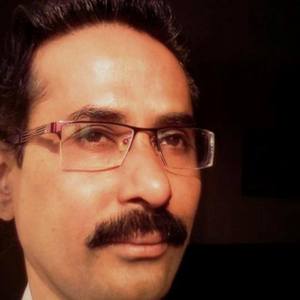Christmas Day, Bamiyan, Afghanistan.
There was a priest who struggled to reform the village drunkard. On his persistent requests to give up booze, the drinker challenged the priest. He argued, “Before renouncing anything, one should experience it. After tasting for a week, if you want me to give up, I will think of it.” By next week, the priest had surpassed the drunkard of the village, promoting himself as the village drunk, and gave up priesthood. Such is the power of evil over good.
Small openings between the huge mountains of the Himalayas - or passes as they are popularly called - have witnessed several kinds of people pass through them over millennia. From the initial samples of Homo Sapien Sapiens to the twenty-first century, these passes have witnessed a variety of cultures that stamped their mark on these passes. However, over time, all the cultures have eroded, leaving only the natural mountains, wadis and lakes untouched, with people returning to their roots, before any culture was introduced in these places. In short, they became cavemen, completing the evolution circle. Only difference is in place of stone clubs, they wield AK47s.
Bamiyan, the place that was a symbol of intelligence and peace for nearly two thousand years, reminding all travellers on the silk route about the importance of peace and the true essence of intelligence, was now a place with lots of caves that gave shelter to the locals from the harsh summer and winter. Without proper education and their inability to comprehend their forefathers’ premonitions, they preferred to have pieces of Buddha statues instead of peace, preached by him.
Near Buddha’s broken statue, a temporary structure was erected to house the television. To prevent reflecting sunrays influencing the contrast of display, broken sheets of an old army tank were placed above and on either side of the set. A large group of people was sitting and standing before the television, waiting for someone to come and start it. It was a very cold day, and most of them were shivering. The tyre of a large military vehicle was burning in the middle of the path that was trotted upon by horses and all other four-legged creatures for thousands of years. People formed small groups to go to the fire and warm themselves. Each group gathered around the fire for roughly two minutes; before they started feeling the heat, they were pushed back by a new group. Few women were using a stove with diesel from the tanker that was hijacked from the military a week ago. On the stove, pieces of lamb coated with a spice paste were being roasted. A few kids at the back were playing with some parts of an old machine gun.
Though men were using cigarettes to keep themselves warm, women had to rely on the heat from the stoves and the warm food, apart from woollen dresses that completely covered them, except for their eyes. One old woman who did not wear a veil was commanding other women in the open kitchen.
Near the feet of the Buddha statue, Habibullah was reclining against a rock, while sitting on the pebbles. He was numb to the pebbles pressing into his bottom, which didn’t cause him any discomfort or pain. He was a worried man. Covered in a leather jacket made of a mountain bull and sporting Nike shoes with woollen socks and two sets of spectacles hanging in chains from his neck, lots of robes wound around his head, and a cigarette in his hand, he appeared like a dead body engulfed by smoke. He was lying there for nearly three hours, smoking continuously. Every half an hour, one of the women brings either coffee or tea for him to drink. Everybody sensed his tension and none ventured to talk to him.
Habibullah turned his head and looked at his men taking turns at the tyre fire. They were his army. He grouped them from various places and taught them to fight together. He moulded them the way he wanted them to be—His soldiers. On his command, any of them would be willing to dive from the cliff, believing that they would reach heaven before their body touched the ground. Most of them were orphans or vagabonds he gathered from the cities of Pakistan, Afghanistan and India. He offered salvation to their souls in exchange for their lives. There were some volunteers, from Russia to France to Argentina. Few of them were believers, or at least they thought themselves to be so. Others were full-fledged mercenaries.
Habibullah was raised in a family of three girls and two boys. He forgot his number in his siblings. His father had three living wives, when Habibullah was born. His mother was the second one. The family moved across mountains, ranging from western Kashmir to Afghanistan through Pakistan. International borders could never deter them and they never bothered about their nationality and other such nonsensical things. In the cold, they moved to plains where everybody worked part-time in the fields of farmers. They had a total of nearly six hundred sheep and thirty plus horses and mules.
From being a nomadic boy to the leader of the most ferocious group of Afghan mercenaries, it was a long journey for Habibullah. And it was not a journey to remember. He was a survivor who had made it through so many dangerous situations, and in every two or three years, he faces a situation when he is vulnerable to his authority over the mercenaries. Losing authority over the group means, he had to give up what he had built over the years. But his age was not on his side, and he sensed it. However big and strong a leader was, there comes a day when the leader becomes irrelevant and is replaced, either voluntarily or forcibly. Habibullah wanted to retire and lead a normal life. He wanted to play with his children and grandchildren. He wanted to look through the window of his house, with his wife serving him tea, when it snowed in the mountains. He was considering a life after retirement for the last six months. Earlier, he never considered himself living another month. After each raid, he felt that his life was extended to let him live for some more time; till the next raid. Before each raid, the anxiety reverberated in his nerves, and he felt sedated. He enjoyed all his raids, killing people and looting them. Burning down the houses while the women were cursing him to rot in hell, killing their kids and raping them, he liked every bit of it. After each raid, he felt a sort of fulfilment of his life. He was ready to die. In fact, before each raid, he prepared himself to die, and this craving to die was more in the recent years. It was probably due to realisation of the imminent.
He was living such life for nearly four decades and knew all the possibilities that were waiting for him at the end of his career. He could count the lives of his colleagues, who led such gruesome lives and still lived to tell tales of their barbarism. Of late, his desire to die had converted into a desire to live. He no longer enjoyed watching the blood gushing out of bodies or people being hacked. He could not stand the killing of infants. He moved the other way when his subordinates treated themselves to such thrills. At 48, he took to smoking and now smoked ten packs a day. He also stopped killing women during raids, and brought some of them back to his
cave where he played with their bodies. The primitive sadism of his mental distress was cooled off by sex, which of course was violent. His soldiers thought their commander was being romantic. He liked playing the role of a playboy.
He desperately wanted to end his current life, and was eager to start his family and own lots of property. He wished to buy a large tract of land stretched out across hundreds of acres, abundant with livestock. There would be dozens of wives and countless children. He wanted to father at least two dozen kids by the time he turned sixty.
He threw the butt of the cigarette he was smoking and closed his eyes. He planned to go to Turkey. He had already bought a farm there. He was waiting for a big raid so that he could sustain the big family he envisaged. The LAST RAID, all in capitals. This time, he would not only guide his team, but also participate in the kill. Before resting forever, he wanted to bathe in blood for one last time. He smiled to himself and reminisced his earlier ventures. “Yes, I am getting old, at least, for this type of living - by killing people. I now enjoy the memories rather than the action.” He lit another cigarette and leaned against the rock, stretching his legs.
The last few years were dull, with no foreign armies to fight. Enforcing laws by killing peasants was not much fun. He enjoyed the days when he fought Russians and then Americans. He chuckled. Now there are white people fighting under him. He looked at the group near the fire and saw one French speaking mujahedeen laughing along with the others. In the last few decades, the number of Caucasian mujahedeens had increased. Earlier, mujahedeens came only from poor countries like India and Bangladesh, apart from Pakistan. Though everyone claims to be a religious zealot, the prime reason for them to take up arms was poverty, unlike the Caucasian bunch, who were more fervent than native Arabs.
He got up and went to the group. They respected him by allowing him near to the fire. He spoke in a low voice: “Children, take rest and exercise regularly. We are going on a mission, within weeks,
and mind you, this would be bigger than whatever we have done. The act will be so mighty that it ensures a place for you in heaven, where virgins await you.” One young fighter, who was no older than seventeen, blushed at the mere mention of virgins. He raised his clenched fist, pumping the air, and exclaimed: “Insha Allah!” Everyone responded: “Insha Allah!”
From a distance the women folk looked at them indifferently.
* * * * *











Comments (0)
See all